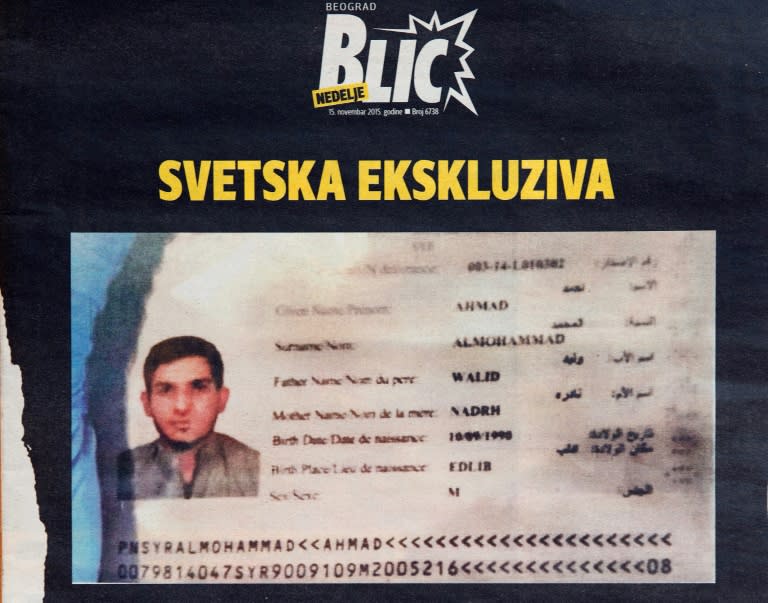Greece names man whose Syrian passport was found at Paris attacks
A Syrian passport found by police at the scene of one of the Paris attacks was issued to Ahmad alMohammad, an asylum seeker who had taken the migrants' route through the Balkans, Greece's migration minister said on Sunday. Yiannis Mouzalas, junior interior minister for migration, said the 25-year-old was registered on the island of Leros on October 3, left the country on an unknown date and was last recorded in Croatia later that month. "This is the sole person on which we have received a request from the French police," he told a news conference. Mouzalas said the registration process had met European regulations and alMohammad had been allowed through Greece as his details did not raise any red flags on the European security database. Likewise, French judicial sources said alMohammad was not known to French anti-terror services. The Serbian daily Blic had earlier published a photograph which it said showed a "Syrian passport issued in the name of Ahmad alMohammad... (who) travelled the entire Balkans migrant route". In an official statement the Serbian interior ministry said the Syrian passport was recently registered at the Presevo border crossing (between Macedonia and Serbia), where alMohammad formally sought asylum. "It has been established that his data matches the data of a person who on October 3 was identified in Greece. There was no Interpol arrest warrant issued for this person," the ministry said. The Croatian authorities confirmed that alMohammad had also travelled through their country. "We did not label the person as potentially suspicious," police spokeswoman Helena Biocic told reporters. French police said the passport was found "near the body of one of the attackers" during the investigation into Friday's deadly assault on Paris. A French source confirmed to AFP that the passport found at the Stade de France bore the name Ahmad alMohammad, born on September 10, 1990. However the same source called for caution before any conclusion was drawn, saying it had not been established that the person identified in the document was one of three suicide bombers who blew themselves up near the stadium. The discovery of the passport has raised fears that some of the assailants might have entered Europe as part of the huge influx of people fleeing Syria's civil war. But Mouzalas insisted that heightened security concerns should not jeopardise the rights of refugees to safety in Europe. "There could be more (such jihadists)... are we supposed to toss 100,000 people in the sea?" he asked. "Greece and Europe must keep a very fine balance between security and human rights," he said. "Most of (the attackers) were born and raised in Western countries... they leave Western countries with legal Western passports, go to jihad and return."




